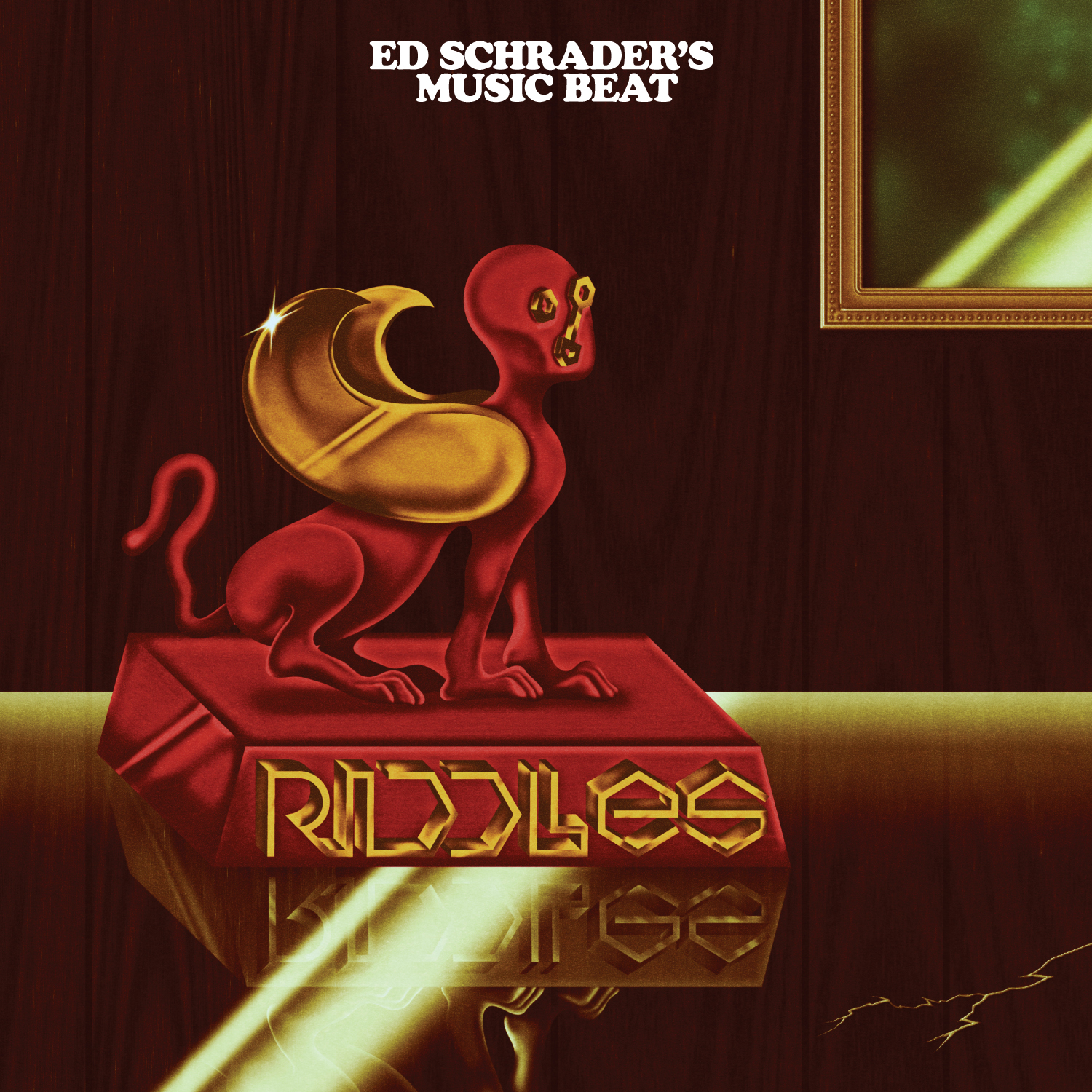On its surface, Ed Schrader’s Music Beat seems like a vestige of the mid-aughts noise rock revival, an outmoded treatise on loudness that sounded its death knell with the fall of The White Stripes. But rather than ride the coattails of the larger bands in the movement, Ed Schrader’s Music Beat built their reputation as grungy weirdos through a series of truly provocative releases. Their 2012 debut Jazz Mind featured collaborations with Matmos and No Age’s Randy Randall; the band has booked opening gigs for the forefather of noise rock, Thurston Moore. Sonically, their music has always pushed the limits of song structure and atonality: Jazz Mind opens with a bassline made up of a repeated chord, layered with Ed Schrader’s manic screams. With refrains like “rats coming over me” and instrumentation that seemed engineered to induce a panic attack, Jazz Mind was much more in line with the avant-punk forebearers of the No Wave genre. Compared with fuzzed-out contemporaries like Sleigh Bells and Male Bonding, Ed Schrader’s Music Beat seemed to derive the most inspiration from eschewing pop conventions altogether.
But Ed Schrader and Devlin Rice seemed to take a step towards pop on their subsequent record — 2014’s Party Jail revealed the depths of Schrader’s voice, a haunting baritone that seemed to engage in a playful back-and-forth with Rice’s minimal basslines. In addition to stripping away some of the harsher tones of Schrader’s voice, the band began to indulge in more traditional notions of rhythm and repetition, with delightful results: songs like “Pink Moons” displayed that Schrader can craft a tune that is halfway between a summer camp singalong and a neo-noir jazz number. And the riff in “Emperor’s New Chair” sounds like an outtake from Led Zeppelin I.
For their third full-length, Riddles, the band cashed in on their Baltimore cred (they won the honor of “Best Band in Baltimore” from the Baltimore City Paper following Party Jail), recruiting Charm City’s most charming oddball, Dan Deacon, to produce, co-write, and engineer the record. Deacon’s sonic flourishes are all over the album: his approach to electronic music, which blurs the line between man and machine, is evident on album opener “Dunce.” On “Dunce,” Schrader’s voice is distorted, looped, distorted, and then looped again for good measure, to create a pulsating, vibrating bassline that carries the song. The sweeping synths that made Deacon’s 2012 epic concept record America feel like a vast, sonic expanse are found again on “Wave To The Water,” repurposed to create a pensive backdrop for Schrader’s wistful nostalgia — “I chased your ghost so many times/ Cheap old cartoons and battle shrines.”
In general, the starkest contrast between their previous efforts and Riddles is the lyrical content. Whereas Jazz Mind and Party Jail delighted in taking the piss out of rock and pop, Riddles explores personal relationships and meaningful introspection through the lens of a lonely outsider. In interviews, the band has spoken about the passing of family members and friends as particularly poignant catalysts for this thematic change, even inspiring the album’s title. After the death of his stepfather, Schrader became frustrated with laughing things off: “It’s like, ‘Riddles? I don’t need that right now. I don’t need irony.’ I needed to go deeper,” he said in a conversation with Noisey. Rice, as well, lost his brother between Party Jail and Riddles. As a composer, he likened the ambient organ on the album’s title track to the sound of his brother’s breathing in a feature with NPR about the album.
These meaningful gestures at connection separate Riddles from the ironic detachment of the band’s previous efforts: “Tom” in particular is a gut-wrenching discourse on memory itself, and the ways that losing someone can make us lose ourselves: “I am running to him, I feel lost and adored/ Are you running through me?” The track’s lush, dense orchestration would otherwise crowd out any other vocalist, but Schrader takes his time with the lyrics, making sure that none are lost to the song’s instrumentation; lines of particular importance are underscored with gentle but meaningful vocal harmonies.
In dealing with the inevitable change that loss engenders, Ed Schrader’s Music Beat and Dan Deacon have crafted a memorable and eclectic record; there are still tracks that harken back to the band’s minimalist/maximalist formula (“Rust”), and it would be simplistic to call this an album about death or loss. Riddles is an album that continuously defies expectations, one that can bleed and weep and still make you want to get up and scream. In that way, Riddles is a bit like John Hughes-meets-John Waters: a coming-of-age tale dusted with the band’s trademark Baltimore grit.
https://open.spotify.com/embed/album/37GcURhqZA8LCtKpB3ZRNu





